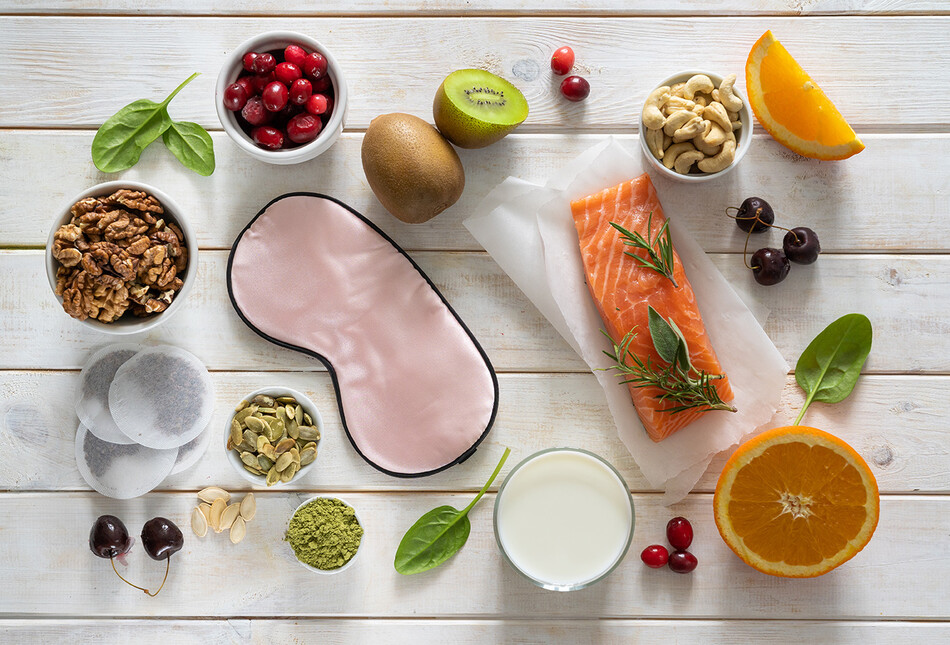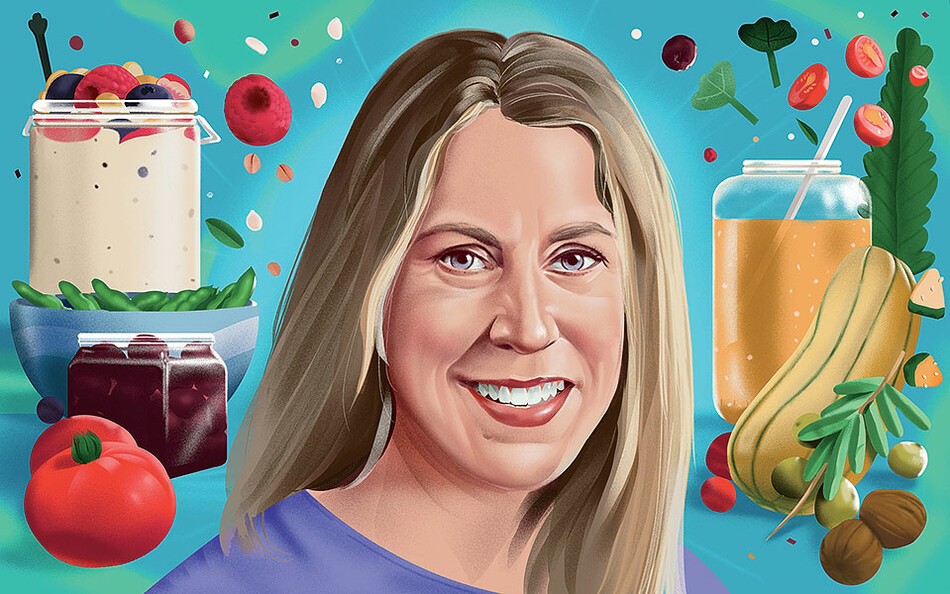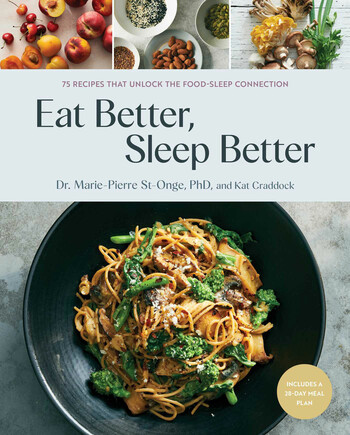In Eat Better, Sleep Better, Columbia nutrition scientist Marie-Pierre St-Onge teams up with Saveur editor in chief Kat Craddock to create a meal plan scientifically designed to unlock the health benefits of good sleep.
Nutrition and sleep are both hot topics, but would you say most people don’t know how closely they’re linked?
I think that’s true. In fact, even as a scientist who studies sleep and nutrition, I was focused for a long time only on the ways that insufficient sleep can impact nutrition, and therefore lead to weight gain and increased risk factors for disease. I didn’t think about the inverse — how nutrition can impact sleep. After conducting extensive studies, I came to the clear conclusion that what we eat plays a major role in how we sleep, and that making some easy changes can have a big impact. An article in The New York Times for which I was interviewed caught the attention of a literary agent, and it occurred to me that the best way to help people implement these changes would be a meal plan, with delicious sleep-friendly recipes that fit into a busy lifestyle.
What foods are most beneficial for sleep?
Generally, I promote a diet low in saturated fat, sugar, and sodium and high in fiber, micronutrients, and phytochemicals. But to specifically boost your body’s sleep mechanisms, prioritize tryptophan-rich protein sources like turkey, clams, and tofu; foods with omega-3 fatty acids such as salmon and chia seeds; complex carbohydrates provided in oats and buckwheat; and a variety of spices, like ginger and turmeric.
What is tryptophan?
Tryptophan is an essential amino acid, which means that the body does not produce it on its own and we must get it from foods. Most people only think about tryptophan at Thanksgiving, when we joke about the turkey putting us to sleep. Tryptophan is not actually a sedative, but it is vital to healthy sleep. About 90 percent of tryptophan is absorbed into the bloodstream, but 10 percent goes to the brain and is converted into melatonin and serotonin, which are hormones that regulate sleep and wakefulness.
Melatonin is readily available at the pharmacy. Will taking a supplement have the same effect as getting it through diet?
Melatonin supplements have gotten very popular. But over-the-counter products are not required to go through rigorous testing or regulation. There’s also user error — people don’t know how much to take or when to take it, and taking the wrong amount can result in side effects like headaches and drowsiness the next morning. While they generally won’t hurt you, you can produce the adequate amount of melatonin, and secrete it at the right time, with a balanced diet.
You tout the benefits of eating tryptophan throughout the day. Won’t that make you sleepy?
It’s not only OK to eat tryptophan-rich foods throughout the day; it’s necessary. Nutrients from food are not available to your body immediately: it takes hours for food to break down and move through the digestive tract — particularly proteins, which are absorbed from the lower part of the small intestine. And while tryptophan produces melatonin, it can’t do so on demand. Melatonin production is regulated by the body’s circadian rhythms. When it gets dark, a few hours before bedtime, melatonin levels rise, signaling to the body that it’s time to sleep.
Is it helpful to stop eating at a certain time before bed?
Digestion, especially after a heavy meal, can impact sleep quality. I generally recommend finishing meals about three hours before bed. Of course, it’s a bit of a catch-22, because going to bed hungry can also make it difficult to sleep. Having a light snack, around 150 calories, thirty to sixty minutes before bedtime can be a good solution if you find yourself famished.
Is there room for alcohol in a sleep-healthy diet? What about caffeine?
Alcohol is a sedative, which can help you fall asleep, but it can also disrupt sleep cycles and cause you to wake up throughout the night. Drinking too much alcohol as a pattern can eventually lead to decreased melatonin production, as well as other conditions that inhibit good sleep, like sleep apnea. There’s better news for coffee lovers. You don’t have to give up caffeine — foods like coffee, tea, and chocolate actually all contain important nutrients. You just have to keep an eye on when you drink it. It takes between four and six hours for the body to metabolize half your uptake of caffeine, so for most people it’s a good rule of thumb to stick to decaffeinated options after lunchtime.





